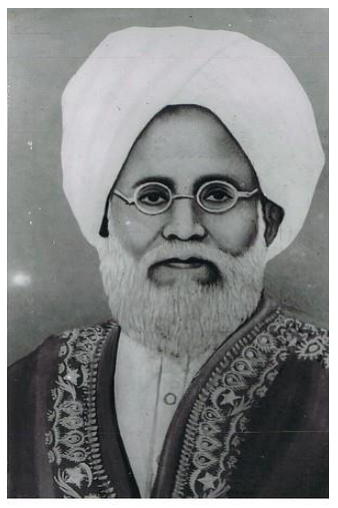
Shibli Nomani (4th June 1857 to 18th November 1914) was an Islamic scholar, poet, philosopher, historian, educational thinker, author, orator, reformer and critic of orientalists from Indian subcontinent during the British Raj.
He is regarded as the father of Urdu historiography. He was also proficient in Arabic and Persian languages. Shibli was associated with two influential movements in the region, the Aligarh and the Nadwa movements. As a supporter of the Deobandi school, he believed that English language and European sciences should be incorporated into the education system.
His synthesis of past and modern ideas contributed significantly to Islamic literature produced in Urdu between 1910 and 1935. Shibli established the Darul Musannefin Shibli Academy in 1914 to promote Islamic scholarship and also founded the Shibli National College in 1883. Although he collected much material on the life of Prophet Muhammad, he could only complete the first two volumes of the planned work, Sirat al-Nabi. His disciple, Sulaiman Nadvi, added to this material and wrote the remaining five volumes after Shibli’s death.
He taught Persian and Arabic languages at Aligarh for sixteen years, where he met Thomas Arnold and other British scholars from whom he learned first-hand modern Western ideas and thoughts. He travelled with Thomas Arnold in 1892 to the Ottoman Empire including Syria, Turkey and Egypt and other locations in the Middle East and got direct and practical experience of their societies. In Istanbul, he received a medal from Sultan Abdul Hamid. His scholarship influenced Thomas Arnold on one hand, and on the other he was influenced by Thomas Arnold to a great extent, and this explains the modern touch in his ideas. In Cairo, he met noted Islamic scholar Muhammad Abduh (1849-1905).
After the death of Sir Syed Ahmed in 1898, he left Aligarh University and became an advisor in the Education Department of Hyderabad State. He initiated many reforms in the Hyderabad education system. From his policy, the Osmania University of Hyderabad adopted Urdu as the medium of instruction. Before that, no other university of India had adopted any vernacular language as the medium of instruction in higher studies. In 1905, he left Hyderabad and went to Lucknow as principal and driving force of the Darul Uloom Nadwatul Ulama, a madrasa founded by the Nadwat tul-‘Ulum. He introduced reforms in the school’s teaching and curriculum. He stayed at the school for five years but the orthodox class of scholars became hostile towards him, and he had to leave Lucknow to settle in the area around his hometown, Azamgarh in 1913.
Nomani and Syed Ahmed wished for the welfare of Muslims, and wanted to have Western thinking and style come along with it. However, Sir Syed wanted to save the Muslims from the wrath of the British rulers after their active participation in the War of Independence of 1857, called the “Sepoy Mutiny” of 1857 by the British colonialist rulers, whereas, Shibli wanted to make them self-reliant and self-respecting by regaining their lost heritage and tradition.
In August 1914 Allama Shibli Nomani went to Allahabad after hearing the news of his elder brother’s illness. Two weeks later his brother died. He then moved to Azamgarh where he developed the basic concept of Darul Musannefin. He passed on 18 November 1914.